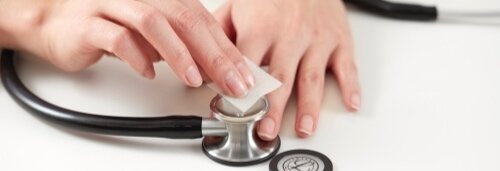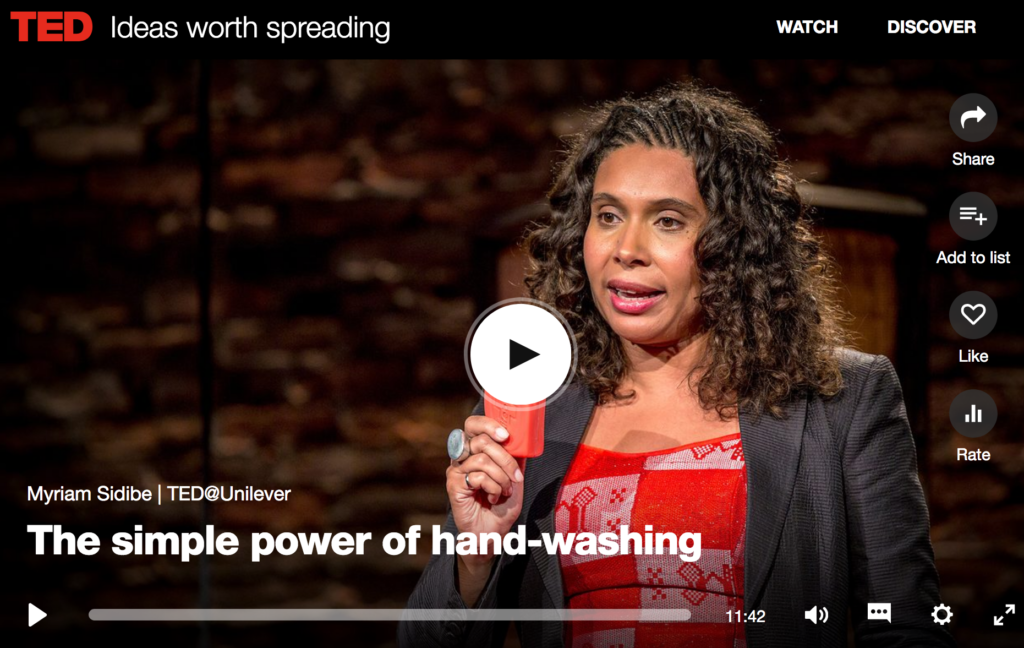My Perception on the Relevance of Hand Washing in Medicine.
““How a simple procedure could save lives.””
Its relevance
I knew the importance of handwashing in the health care environment, but I always find these readings (Better: A surgeon’s notes on performance) to be enlightening even on a subject that we already studied and know the gist of the importance of handwashing. It is important to recognise the few factors when being aware of keeping the aseptic integrity such as hand hygiene which is very useful when providing patient care, the usage of gloves on its effectiveness in preventing infections, and artificial nails as well as watches, wedding rings and stethoscope which are associated with higher counts of gram-negative bacteria [1].
This is particularly important when handling geriatric patients or being in neonatal intensive care units or treating immunosuppressive patients where these patients are particularly vulnerable to dangerous pathogens. I always find it alarming and unbelievable on how easy it is to transmit lethal pathogens and especially the steps that could be taken to decrease those transmissions. Washing your hands with 70% alcohol gel is not complicated and is easy to use and apply but why do health care professionals still don’t do it as effectively or up to the hospital standards?
We, the health care professionals, are here to serve the population to get better and heal and by being careless we are putting patients at risks where there shouldn’t even be one in the first place. A simple and efficacious hand wash at the right time and the right moment, such as the 5 entry points of handwashing, will decrease infection transmission, which decreases patient relapse and time they have to spend in hospital, which further decreases the potential side effects on medications that would overload the liver and kidneys such as antibiotics and finally, would decrease the overall cost on the health care system as hospitals are on a very tight and strict budget. This furthers liberates a bed where potentially another patient can use. This decreases the health care professional time and effort as they have to treat the patient for a second time. The relevance of hand washing, as small as the act seems to be, is especially crucial in my future profession and it shouldn’t be ignored as it has a massive impact on health.
There is now undisputed evidence that strict adherence to hand hygiene reduces the risk of cross-transmission of infections and healthcare-associated infections are drawing increasing attention from patients, hospitals and governments and regulatory bodies [2]. There is a recognition that hand washing is associated with morbidity, mortality and cost of treatment, and that most of these are preventable [2].
Currently, there is an increase in the global spread of multi-drug resistant infections in health care set-ups that will eventually become lethal as antibiotics will not be as efficient as they used to [2]. Hand washing is related to antibiotic resistance as the spread of diseases and pathogens is due to poor hand hygiene and will become a problem in the near future as new antibiotics take a lot of funding and time to come out on the market. There is also a limited amount of antibiotics on the market that still have an effective outcome but options of the right antibiotics with the right spectrum and efficacy against a certain type of bacteria are running low. Below is a Ted Talk on Hand Washing and its importance relating to hygiene and transmitting diseases.
Myriam Sidibe is a warrior in the fight against childhood disease. Her weapon of choice? A bar of soap. For cost-effective prevention against sickness, it’s hard to beat soapy hand-washing, which cuts down the risk of pneumonia, diarrhoea, cholera and worse. Sidibe, a public-health expert, makes a smart case for public-private partnerships to promote clean hands — and local, sustainable entrepreneurship.
As a future health care professional, we must adhere to the guidelines of good medicine practice (GMP) in reducing drug-resistant bacteria or pathogens at any health centres. As a future general practitioner who wants to work in the rural area of Australia, I will adhere to the world health organization (WHO) handwashing agenda which they introduced as “Clean Care is Safer Care” [3]. Clean Care is Safer Care is a prime agenda of the global initiative of WHO on patient safety programmes and focuses on simple, effective, low-cost techniques in the prevention of infections [3].
Hand hygiene at the right time saves lives and is a quality indicator of safe healthcare systems which should be introduced and educated to the community in rural areas [3]. Soap is affordable and accessible, where patients could learn on the effectiveness of alcohol-based hand rub and washing techniques. As a person, I will always be mindful and try to wash my hands before and after caring for someone who is sick, before and after treating my patients and enhance the 5 entry points of hand hygiene, after using the toilet, after blowing your nose, coughing, or sneezing, or after touching an animal and garbage. Although it is easier said than done and it is easy to forget the importance of hand hygiene [1]. Hand washing requires discipline and it helps to get used to it as early as possible so that the actual act of handwashing occurs without thinking twice.
Effective health care worker hand hygiene is a core strategy in the prevention of healthcare-associated infections and the transmission of antimicrobial resistance. Hand Hygiene Australia provides resources and services necessary for the implementation and sustainability of the NHHI and supports the education of all Australian health care workers about the importance of hand hygiene in the prevention of healthcare-associated infections.
For such a small act handwashing makes an immense impact on the health care system and is therefore important to start as early as possible to create a good habit about the right procedures and the impact of hand washing. It is shown that decades of psychological research consistently demonstrates that mere repetition of a simple action in a consistent context leads, through associative learning such as lectures and practicals on hand washing, to the action being activated upon exposure to the right cues [4]. By repeating the handwashing procedures our dependence on conscious attention or motivational processes is reduced [4].
Therefore, habits are likely to persist even after conscious motivation or interest dissipates and hence good habits never die [4]. Hopefully, it will be a habit that everyone in the cohort will be doing it right and at the right time as handwashing saves lives and alleviates pressure on the health care system overall.
Here is a video relating to handwashing at a hospital-level and its consequences it has on people's lives, simply click on the image:
Video from Chubbyemu, published on the 11th of September 2017.
Published 30th September 2018. Last reviewed 30th December 2021.
Reference
1. Gawande A. Better a surgeon’s notes on performance. 2nd ed. London, Great Britain: Profile Books LTD; 2007.
2. Park JH, Cheong HK, Son DY, Kim SU, Ha CM. Perceptions and behaviors related to hand hygiene for the prevention of H1N1 influenza transmission among Korean university students during the peak pandemic period. BMCInfect Dis. 2010;10(222):611-620.
3. Pittet D. Clean Care is Safer Care. World Health Organization. http://www.who.int/gpsc/background/en/. Updated 2018. Accessed April 28, 2018.
4. Gardner B, Lally P, Wardle J. Making health habitual: the psychology of ‘habit-formation’ and general practice. Br J Gen Pract. 2012;62(605):664-666.































